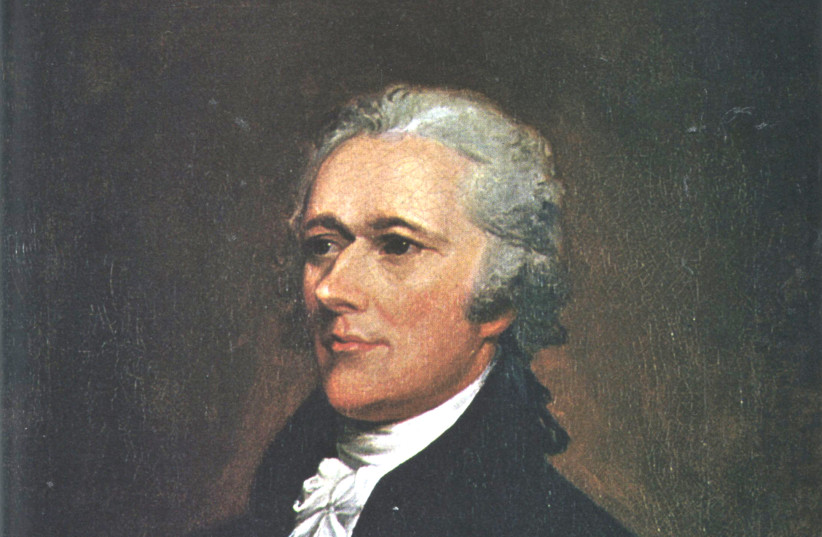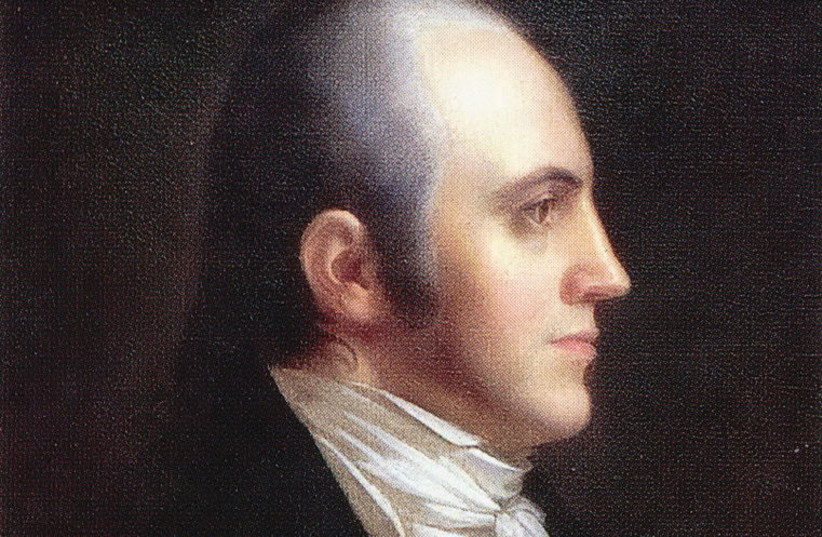June 11, 2022 marks 218 years since the duel between US vice president Aaron Burr and former Treasury secretary Alexander Hamilton, the most famous duel in American history that saw Hamilton killed.
The event has been immortalized in several books, memorials and most famously, the hit Broadway musical Hamilton.
It served to have a lasting impact on the young US, permanently crippling the Federalist Party and permanently ending Burr's political career, ensuring his legacy would only be shooting Hamilton.
<br>How does a bastard, orphan, son of a whore...
There is some considerable background to the incident, dating back to the early days of both of their careers, but the immediate causes can be rooted in more recent events from the preceding years.
Hamilton and Burr were both veterans of the American Revolution and political figures in the early days of the United States.

Hamilton had set himself up as a key figure in the Federalist movement, helping pass the US Constitution, becoming Treasury secretary and close friend and confidant to first president George Washington and essentially creating the US financial system.
He also served as a prominent figure in US politics, having been involved in the Compromise of 1790 that saw the US capital being established on the banks of the Potomac River, what is now known as Washington, DC.
However, he strongly disagreed with both fellow Federalist John Adams, left his position and eventually saw his political career disgraced following the publication of the Reynolds Pamphlet, where his infidelity was exposed.
<br>Me? I'm the damn fool who shot him
By contrast, Burr was more closely aligned with the Democratic-Republicans, alongside the likes of Thomas Jefferson, James Madison and James Monroe, all of whom would later become US president.
<br>Wait for it, wait for it
Despite what the Hamilton musical has presented, Burr and Hamilton were not longtime friends, though they did know of each other and in fact, letters show Hamilton had a negative opinion of him. Arguably their most famous interaction was surrounding the Reynolds Pamphlet, America's first sex scandal.
To make a long story short, Hamilton accused Monroe of leaking information about his affair with a married woman and subsequent extortion by her husband to the press, as Monroe was only told it in confidence. Hamilton would later challenge Monroe to a duel over it, though Monroe's second, Burr, talked them out of it. This is considerably ironic in retrospect, considering the two would later end up facing each other in a duel.
But the two were also on opposite sides of a political dispute, one that Burr essentially started.
"Burr loves nothing but himself; thinks of nothing but his own aggrandizement, and will be content with nothing, short of permanent power in his own hands."
Alexander Hamilton

Mr. Burr, sir
The two factions considerably opposed one another, with a major part of the conflict being sparked by Burr, who in 1791 won the US Senate seat in New York from Philip Schuyler, Hamilton's father-in-law who had noted pro-Federalist leanings.
This feud had caused considerable issues for the US political system, which was most reflected in 1800.
Federalist president John Adams saw no chance of winning reelection in 1800, and as such, the US electorate was divided between two Democratic-Republican candidates: Burr and Jefferson.
With the deadlock sending the vote to the House of Representatives, Jefferson was chosen as president, thanks in part to Hamilton, who wrote to his many Federalist allies urging them to support Jefferson.
As noted in a letter, Hamilton considerably preferred Jefferson, a longstanding political opponent of his, rather than Burr.
"There is no doubt but that upon every virtuous and prudent calculation Jefferson is to be preferred. He is by far not so dangerous a man and he has pretensions to character," Hamilton wrote.
"As to Burr, there is nothing in his favour. His private character is not defended by his most partial friends. He is bankrupt beyond redemption except by the plunder of his country. His public principles have no other spring or aim than his own aggrandisement per fas et nefas. If he can, he will certainly disturb our institutions to secure to himself permanent power and with it wealth."
He further clarified his feelings in another letter: "Burr loves nothing but himself; thinks of nothing but his own aggrandizement, and will be content with nothing, short of permanent power in his own hands. No compact that he should make with any passion in his breast, except ambition, could be relied upon by himself. How then should we be able to rely upon any agreement with him. Jefferson, I suspect, will not dare much. Burr will dare every thing, in the sanguine hope of effecting every thing."
Following this, Burr became Jefferson's vice president, though the two also did not get along and there was no chance of Burr running alongside Jefferson for reelection.
But the duel did not happen yet. Rather, it happened after Hamilton again interfered with Burr's political aspirations.
Burr decided to run for governor of New York in 1804 and saw the backing of Federalists and of the budding political machine of Tammany Hall. Here, Hamilton furiously fought against him, even backing a Democratic-Republican, Morgan Lewis, who eventually won.
<br>Your obedient servant
It was during this time that a New York newspaper published a letter sent to Schuyler opposing Burr, making reference to Hamilton saying he "looked upon Mr. Burr to be a dangerous man, and one who ought not be trusted with the reins of government."
This started a series of letters between Burr and Hamilton, both of which saw the two refuse to compromise and, eventually, saw Burr challenged Hamilton to a duel.
The historical interpretations of these preceding events and what followed are hotly debated, such as whether this was justified. After all, technically Hamilton never apologized, but also technically Burr's request for an apology or explanation could have referred to literally anything Hamilton had said over the preceding decade.
<br>Everything's legal in New Jersey
Dueling was illegal in New York and New Jersey, though it was rarely enforced in New Jersey, which is where the two of them met for their duel. Incidentally, the location of the duel, in Weehawken, was close to where Hamilton's own son was killed in a duel years prior.
The two followed traditional customs for dueling and both took pistols. Both of them had been involved in many duels in the past, as well. It is heavily debated by historians what Hamilton's intentions were, especially since he would write a letter before the duel stating how he opposed dueling and wrote of his intention to throw away his shot.
By contrast, multiple pieces of evidence point to Burr completely intending to kill Hamilton.
<br>I'm throwing away my shot
Historians further debate exactly what happened here at the duel. Some say both fired. Some say only Burr fired. Some say Hamilton fired and intentionally missed.
As is the nature of dueling customs, both seconds weren't watching.
What is certain though, is at the end of it, Hamilton was mortally wounded and died the next day.
<br>I imagine death so much it feels more like a memory
The lasting impact of this can be seen in numerous ways, first and foremost monuments and memorials, as is expected.
Anti-dueling movements became more widespread in the US. In fact, Burr was even charged with murder, though it never went to trial and the case was quashed by the state Supreme Court.
His death has helped immortalize Hamilton in American history, bolstering the legacy of his political efforts and financial system.
Burr, it should be noted, did not simply do nothing while he was vice president. While the distaste between him and Jefferson did lead to the passing of the 12th amendment of the Constitution which changed how the vice president was chosen, Burr also essentially helped set the precedent for the vice-presidential office.
Burr, a career lawyer when not a politician, essentially set the rules for impeachment trials and established the standard for behavior in the Senate.
As vice president, Burr also served as president of the Senate and was known by many for being fair in his conduct. Burr also is seen by many as being responsible for the preservation and empowerment of an independent judiciary, partially responsible for the extensive powers the Supreme Court holds today.
